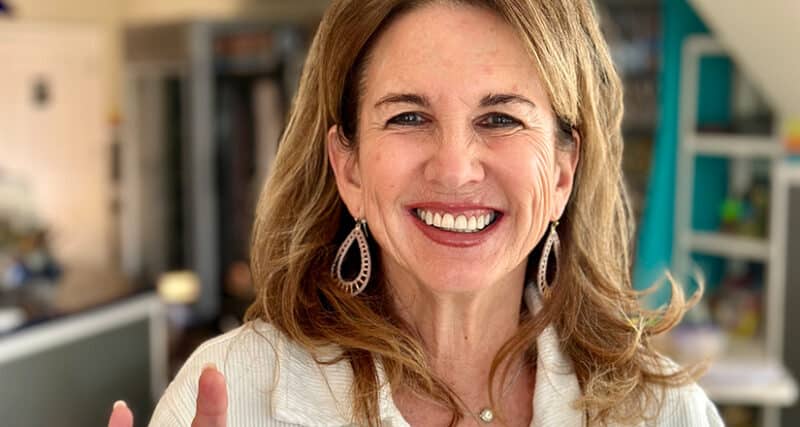Teachers of New Jersey: Kimberly Weinstock, Educator at Summit Speech School, New Providence, New Jersey
I was born deaf. My mom had the measles in 1963 while she was pregnant with me. When I was born, I was born deaf. My mother at the time was a 20 year old young mom, and she kept telling everyone, ‘My daughter’s deaf,’ but nobody would listen to her. But she knew something was not right. She’s a good lip reader, and she and my dad both involved me in speech therapy and that’s how I learned to talk and listen. Back in the day we had hearing aids, and when I went mainstream in my hometown I was basically the only deaf student in my town, so it was lonely. I didn’t have any role models, I didn’t have any peers who shared my experience, and I had to constantly lip read for me to try to function with my hearing aid. I wasn’t supposed to use sign language which would have made my life easier.
I went to college and while I was there, my mother said to me, ‘You should become a teacher to the deaf, you would definitely be great at it.’ But I wasn’t identifying myself as a deaf person at that time, because I grew up in a hearing world. So I was just like, ‘No, no, I’m not that person.’ So I definitely had a little bit of growing up to do with that component. After I graduated college I said, ‘You know what, I need to explore that side of myself. What’s the worst thing about being deaf? Maybe it’s the best thing.’ So after college I joined the National Theatre of the Deaf and that was my first exposure to sign language. I fell in love with learning ASL, and I fell in love with being part of the deaf culture. I absolutely loved the whole experience. I wound up moving to Washington DC, and actually got a job at Gallaudet University at the high school level for the deaf. I taught there for a year and I loved it but my heart and soul was with New Jersey. So I came back to New Jersey and I got a job in Manalapan teaching the deaf.
I definitely am an advocate for the deaf. Meaning that when I teach, I always tell my students that they need to learn American Sign Language, that they need to socialize in deaf communities and deaf clubs. They need other role models. I know they will look up to me, but they also need more for themselves. It is so important to have that sense of identity.
Growing up I always had my hearing aids, but then when I was pregnant with my second son, it wiped away all my remaining hearing, which meant that the hearing aids were no longer functional for me. I became completely deaf at that time. So my audiologist said to me, ‘I think you’d be a perfect candidate to get the cochlear implant.’ At that point in my life I had two kids, and I needed to hear them. So I got my first cochlear implant when I was 33. And it was fantastic. Fast forward 20 years later, and my audiologist said, ‘Kim, I think you should go and get a second cochlear implant.’ At this point in my life, I’m like ‘Why I’m doing fine. I can hear I’m good.’ He said, ‘if you get the operation done, you’ll have the latest model.’ I got their new implant, and it was a game changer. I am able to hear things that I never could hear before.
I tell anybody with a speech impediment, be your best advocate. You have to advocate for yourself. Nobody can advocate for you. Surround yourself with encouraging people, and be an encouragement to others yourself.
Interview and photo by Gregory Andrus, Portraits of the Jersey Shore





